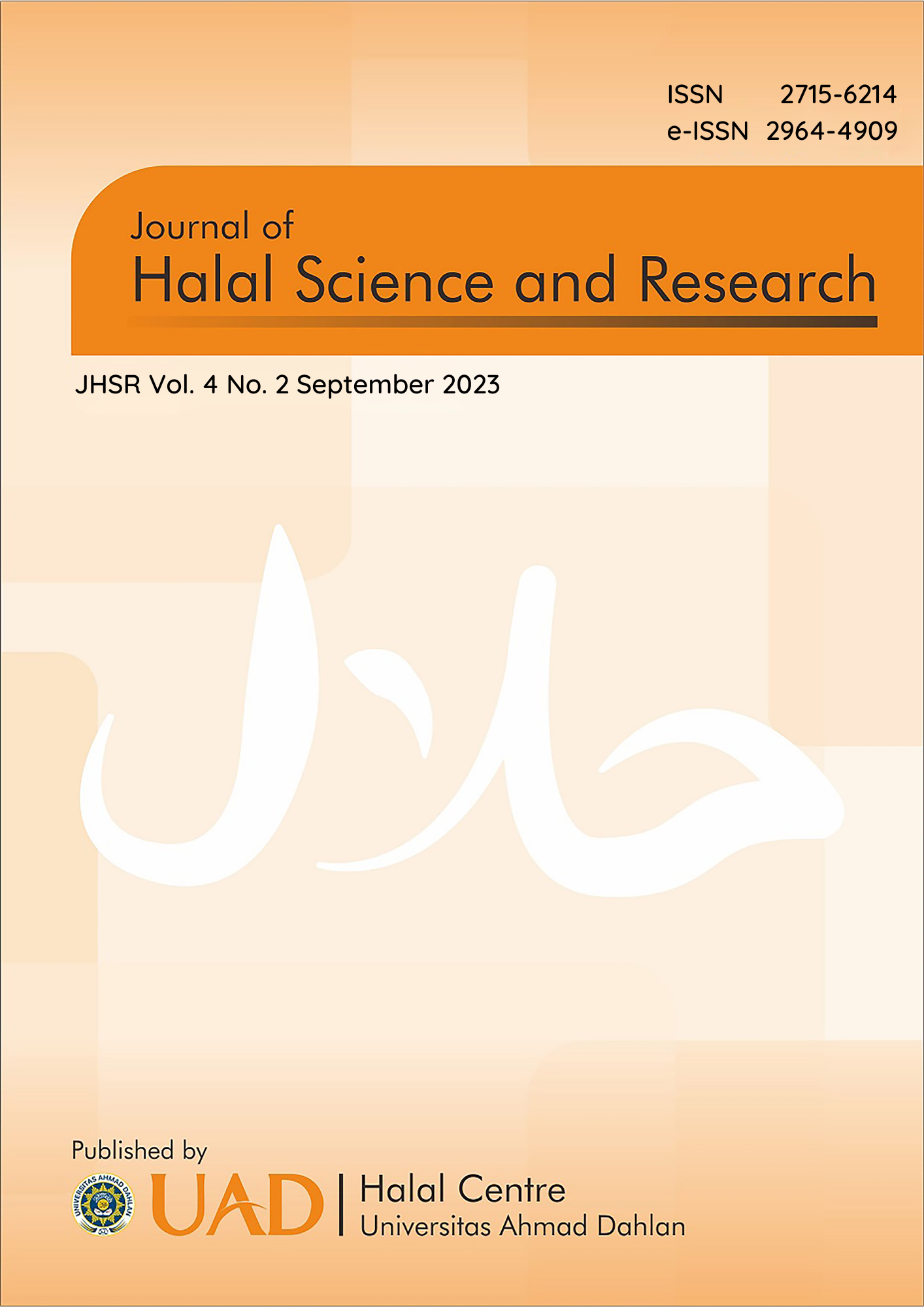Potential economic feasibility of suweg flour production as a high carbohydrate food ingredient
DOI:
https://doi.org/10.12928/jhsr.v4i2.7729Abstract
Tubers are high-carbohydrate food ingredients that are widely available in Indonesia. However, not all tubers in Indonesia are used and developed optimally. Suweg is a tuber plant that can grow in yards or fields without special maintenance. Some farmers in Java, Sumatra, and Eastern Indonesia already know Suweg. Suweg is a very potential source of food. Suweg has prospects to be developed into tuber flour and starch. Suweg, which belongs to the taro tribe, is being looked at by several groups in the food and health supplement industry as a raw material because of its nutritional content. In this study, tubers of suweg were processed into intermediate products in the form of suweg flour using a modified salt solution immersion method and fermentation using a lactic acid bakery starter (BAL). The resulting suweg flour is brownish-white powder, clean from other impurities, with a distinctive suweg odor and a slightly characteristic suweg taste and passes through an 80-mesh sieve. The economic simulation results in producing 85.8 kg of suweg flour for 1 month packaged in 1 kg obtained a base price of Rp. 4,290,000, R/C ratio of 1.3, BEP volume of 39.55 packages, BEP price of Rp. 1,977,660.
Keywords: tubers, suweg flour, intermediate products, lactic acid bacteria
Downloads
Published
Issue
Section
License
Copyright (c) 2023 Universitas Ahmad Dahlan

This work is licensed under a Creative Commons Attribution-NonCommercial-ShareAlike 4.0 International License.
Authors who publish with JHSR (Journal of Halal Science and Research) agree to the following terms:
1. Authors retain the copyright and grant Universitas Ahmad Dahlan right of first publication with the work simultaneously licensed under a Creative Commons Attribution-NonCommercial-ShareAlike 4.0 License (CC BY-NC-SA 4.0) that allows others to share (copy and redistribute the material in any medium or format) and adapt (remix, transform, and build upon the material) the work for any purpose, even commercially with an acknowledgement of the work's authorship and initial publication in Universitas Ahmad Dahlan.
2. Authors are able to enter into separate, additional contractual arrangements for the non-exclusive distribution of the journal's published version of the work (e.g., post it to an institutional repository or publish it in a book), with an acknowledgement of its initial publication in Universitas Ahmad Dahlan.
3. Authors are permitted and encouraged to post their work online (e.g., in institutional repositories or on their website) prior to and during the submission process, as it can lead to productive exchanges, as well as earlier and greater citation of published work (See The Effect of Open Access).

This work is licensed under a Creative Commons Attribution-NonCommercial-ShareAlike 4.0 International License.




